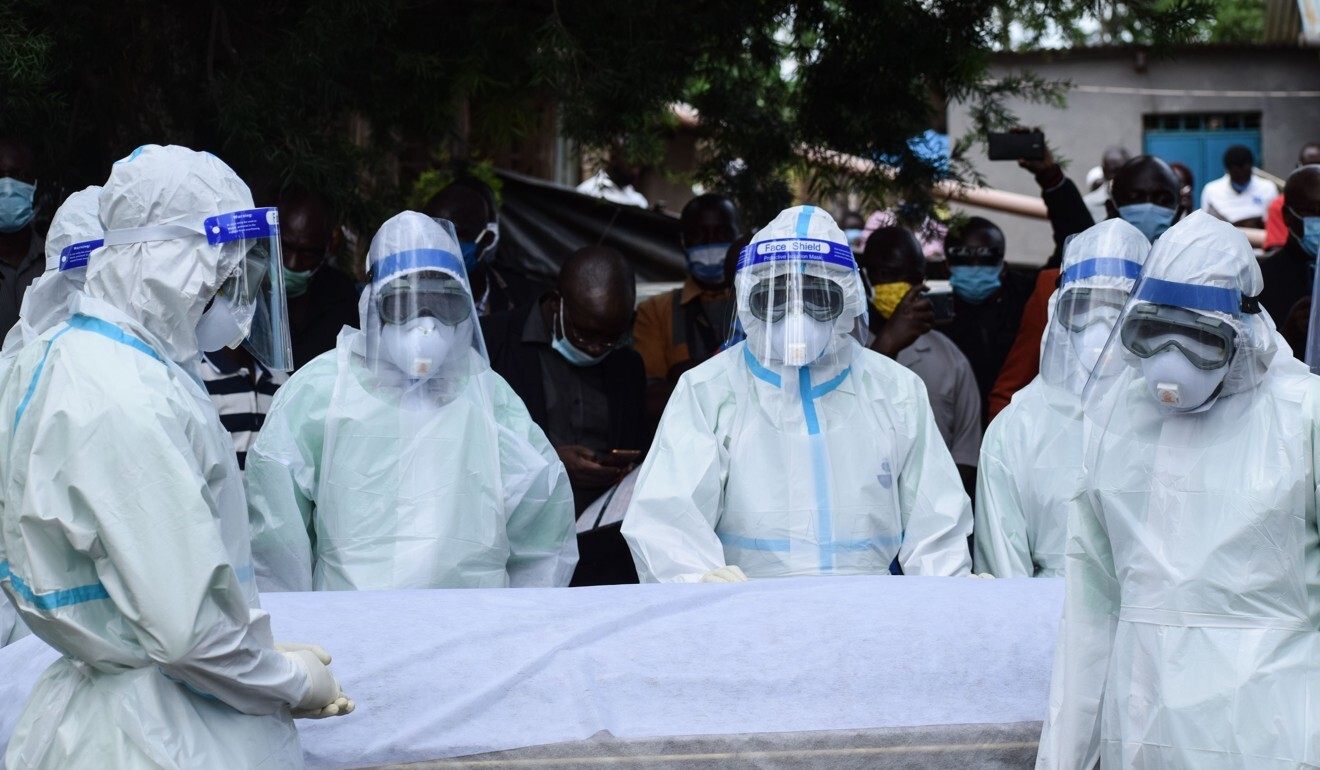
African leaders blame citizens as coronavirus cases increase, seeking to shift responsibility
- The change in tone marks an attempt by the continent’s leaders to absolve themselves of some of the blowback, analysts say
- Maintaining physical distancing has proved difficult in many crowded slums, and appeals to wear masks have often gone unheeded

African leaders are turning on their citizens as efforts to curb the spread of the coronavirus fall short and already fragile health care systems struggle to cope with an influx of patients.
The message from governments in several nations that initially praised their citizenry for supporting efforts to contain the pandemic has shifted, with some officials now chastising them for not doing enough.
The change in tone marks an attempt by the continent’s leaders to absolve themselves of some of the responsibility for the escalating number of infections, and head off potential social unrest, said Amaka Anku, head of the Eurasia Group’s Africa practice.
“[They’re] reminding voters that the government has set out clear rules that people need to follow,” Anku said. “So if some people don’t follow it, government shouldn’t be blamed.”
Infections took off relatively slowly in the world’s poorest continent after many nations imposed stringent lockdowns, but confirmed cases soared as economies reopened, breaching the 600,000 mark this week. Maintaining physical distancing has proved difficult in many crowded slums, and appeals to wear masks have often gone unheeded, with some questioning the seriousness of the disease.
The increased severity of the pandemic “may create a recipe for political unrest”, said Dismas Mokua, a political analyst based in Nairobi, Kenya’s capital. “Citizens who are unhappy with the status quo will blame the government for both errors of omission and commission that result in increased infections and deaths, as well as lost economic opportunities.”
In South Africa, which has almost half the continent’s confirmed virus cases, the government has faced criticism for imposing some seemingly arbitrary lockdown rules that caused undue economic hardship. While the authorities initially conceded they had made mistakes and pledged to rectify them, President Cyril Ramaphosa went on the offensive this week and railed against those who went on drinking sprees, organised parties and failed to wear masks in public.
Ivory Coast’s government this week said it would enforce the mandatory use of masks in public after its advice to do so went largely unheeded, and urged citizens to maintain physical distancing. Kenyan President Uhuru Kenyatta cautioned that rescinded curbs on movement will be reinstated if citizens fail to do their civic duty to keep the pandemic in check – a warning echoed by Ghanaian Information Minister Kojo Oppong Nkrumah.

In Nigeria, the authorities have increasingly emphasised that citizens must take responsibility for their own health and warned that those who neglect to wear masks or maintain physical distancing will face arrest. Several hundred people have already been prosecuted.
Citizens do have to exercise personal responsibility, yet their individual impact on the trajectory of the disease is limited, Mokua said.
“It is the responsibility of political leaders to offer direction” and flatten the infection curve, he said. “They cannot pass the buck.”